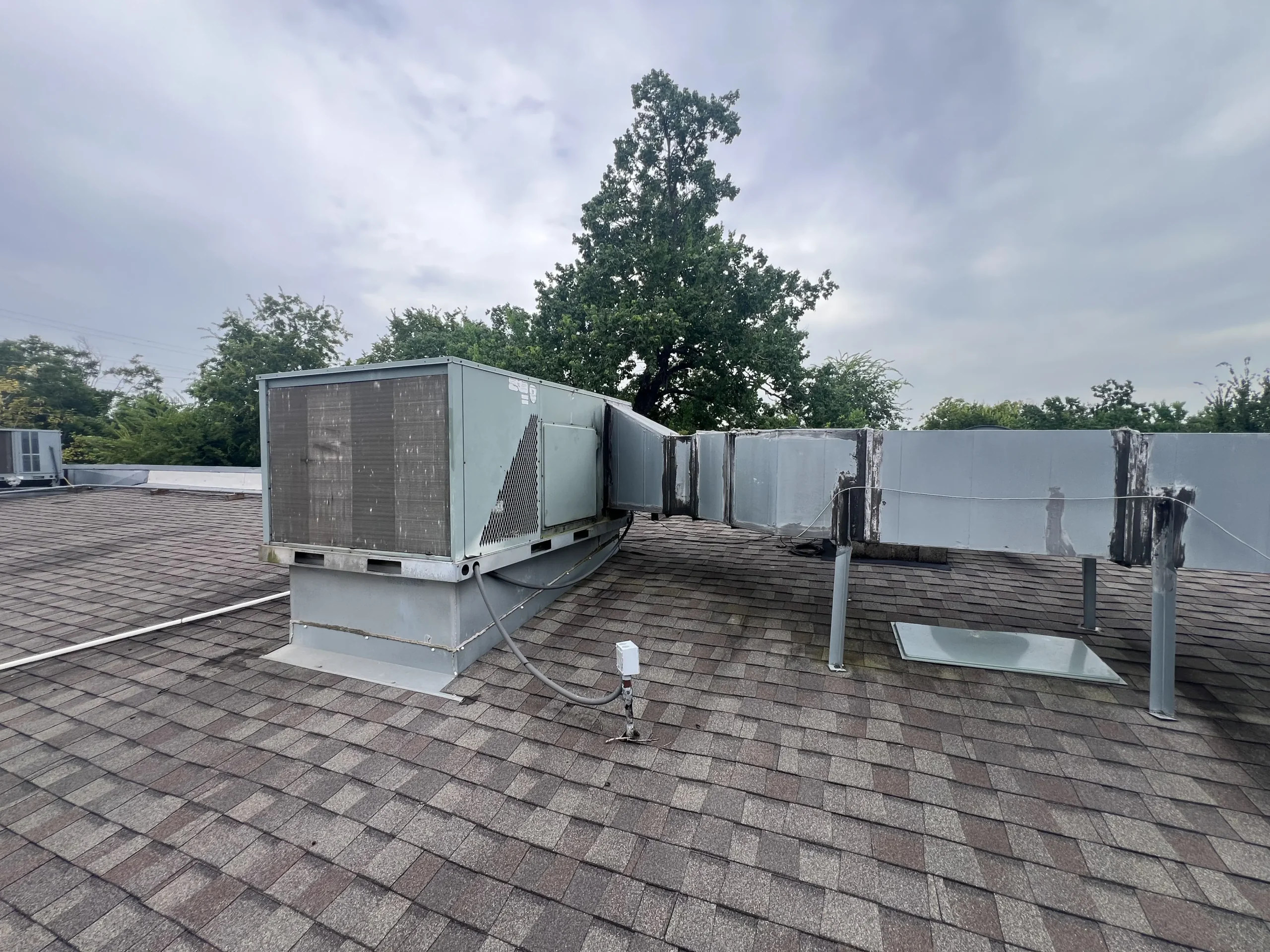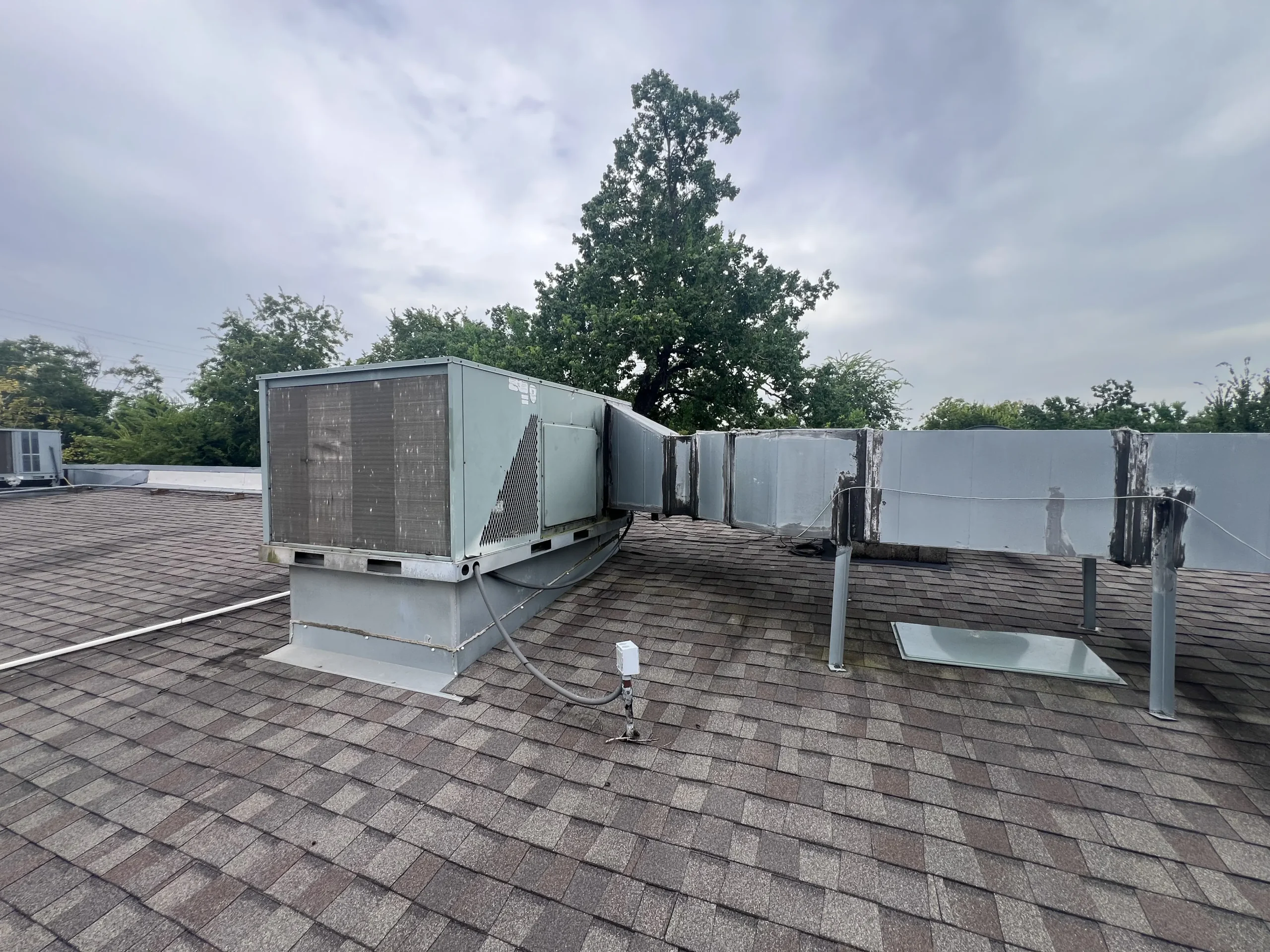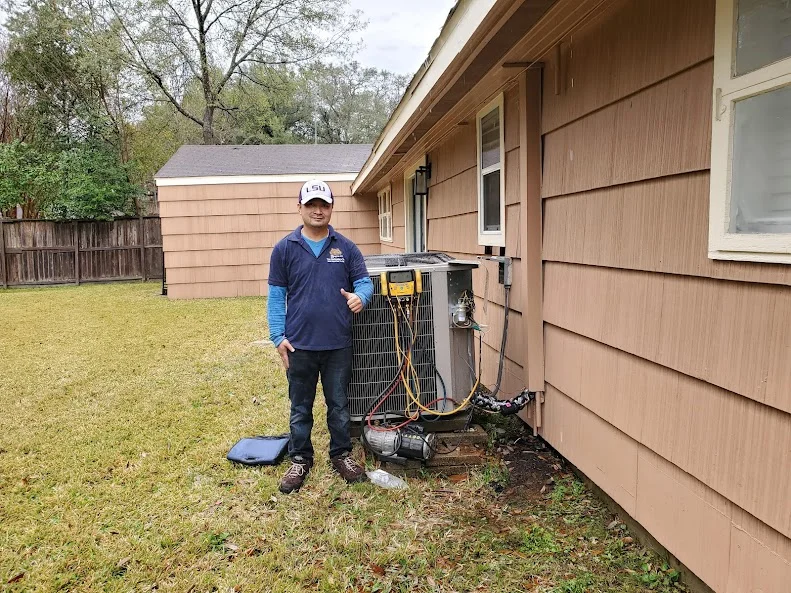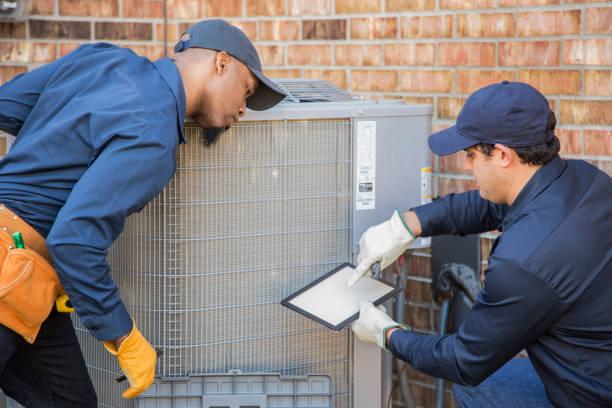When your air conditioner fails during a Houston summer, the last thing you want is sticker shock on top of the sweltering heat. Understanding what constitutes reasonable AC repair rates can mean the difference between getting quality service at a fair price and overpaying for substandard work. In a market where repair quotes can range from $75 to over $1,500 for the same issue, knowing how to evaluate pricing while ensuring you’re not sacrificing quality is essential for every homeowner.
At 75 Degree AC, we’ve seen firsthand how pricing confusion leads homeowners to make poor decisionseither choosing the cheapest option that results in recurring problems or overpaying for simple fixes out of fear. This comprehensive guide breaks down what reasonable AC repair rates look like in 2025, the factors that legitimately affect pricing, and how to find that sweet spot where quality craftsmanship meets fair value.
Understanding the True Cost of AC Repair
AC repair costs aren’t arbitrary numbers pulled from thin air. Several legitimate factors influence what you’ll pay, and understanding these elements helps you distinguish between reasonable rates and price gouging.
National Average AC Repair Costs
According to HomeAdvisor’s 2024-2025 data, the national average cost for AC repairs ranges from $165 to $550, with most homeowners paying around $350 for standard repairs. However, Houston’s climate and market conditions create some regional variations:
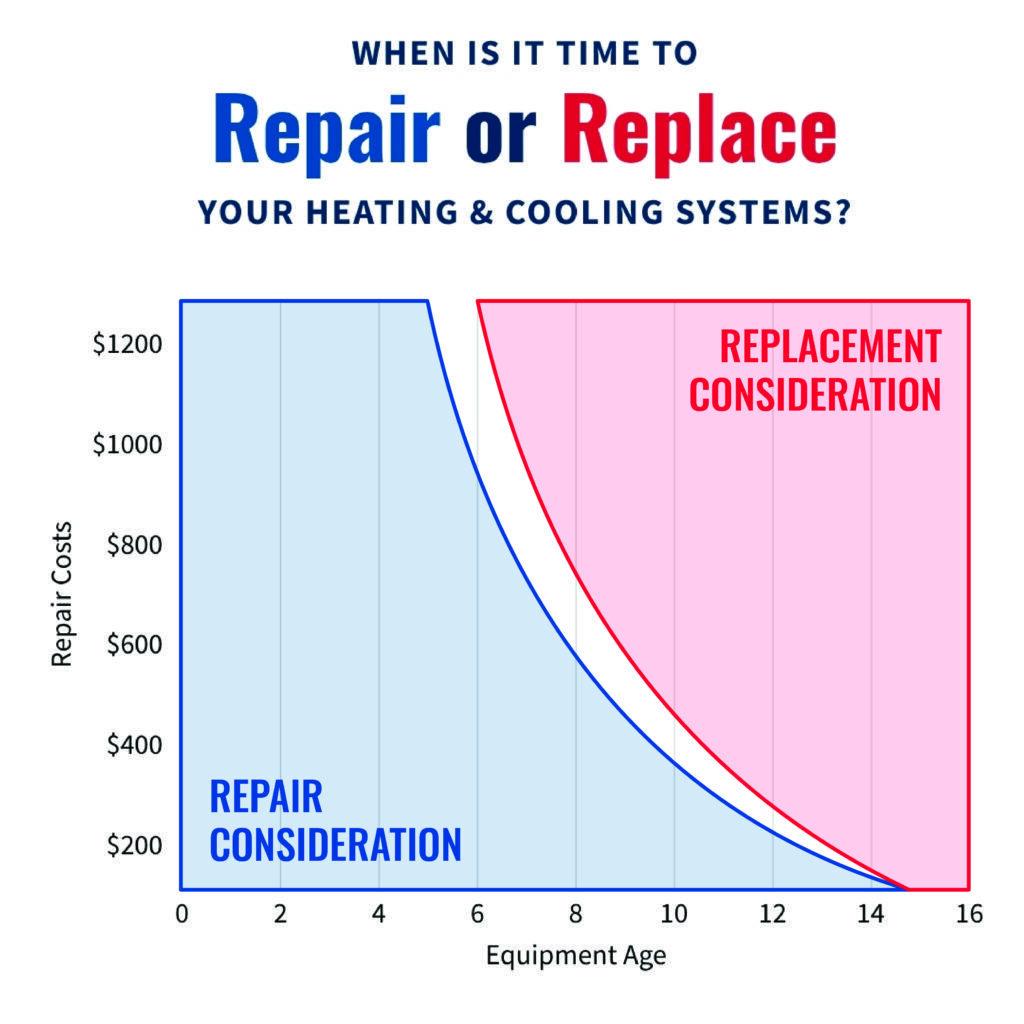
- Diagnostic fees: $75$150 (often waived if you proceed with repairs)
- Minor repairs: $150$400 (capacitor replacement, thermostat issues, minor refrigerant leaks)
- Moderate repairs: $400$1,200 (compressor contactor, fan motor replacement, ductwork repairs)
- Major repairs: $1,200$2,500 (compressor replacement, extensive refrigerant leaks, evaporator coil replacement)
- Emergency service premiums: Additional $100$300 for after-hours or weekend calls
These ranges reflect reasonable market rates for licensed, insured HVAC contractors using quality parts. Quotes significantly below these ranges may indicate unlicensed technicians, substandard parts, or incomplete diagnostics that lead to recurring issues.
Factors That Legitimately Affect Repair Pricing
Several variables influence what you’ll pay for AC repair, and recognizing these helps you evaluate whether a quote is reasonable:
System Type and Age: Older units (10+ years) often require more expensive parts that may no longer be readily available. Specialized systems like ductless mini-splits or high-efficiency variable-speed units involve more complex diagnostics and repairs, justifying higher labor costs.
Repair Complexity: A simple capacitor replacement takes 30 minutes and minimal expertise. Diagnosing and repairing a refrigerant leak in a multi-zone system can take 46 hours and requires EPA certification and specialized equipment.
Parts Quality and Availability: OEM (Original Equipment Manufacturer) parts cost 2040% more than aftermarket alternatives but offer better reliability and warranty coverage. During peak summer months, high-demand parts may carry premium pricing due to supply constraints.
Labor and Overhead: Licensed contractors carry insurance, maintain certifications, invest in diagnostic equipment, and employ trained techniciansall costs reflected in their rates. According to the Air Conditioning Contractors of America (ACCA), legitimate HVAC businesses typically operate on 1015% profit margins after covering these expenses.
What Makes a Rate “Reasonable” vs. “Excessive”
Reasonable pricing balances three elements: the actual cost of parts, fair compensation for skilled labor, and legitimate business overhead. Here’s how to evaluate quotes:
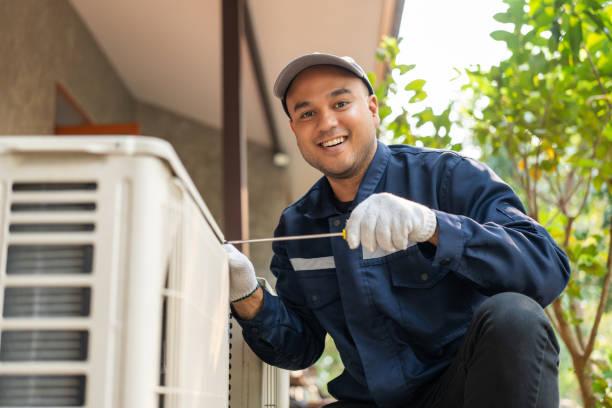
The Markup Breakdown
Understanding industry-standard markups helps you spot unreasonable pricing. Most reputable contractors use this general formula:
| Cost Component | Industry Standard | What This Covers |
|---|---|---|
| Parts Cost | Actual wholesale + 2550% markup | Part warranty, handling, emergency inventory |
| Labor Rate | $75$150 per hour | Technician wages, training, certifications, insurance |
| Diagnostic Fee | $75$150 | Equipment, expertise, diagnostic time (typically 3060 min) |
| Service Call Fee | $50$100 | Travel, fuel, scheduling, dispatching |
| Emergency Premium | 1.5x2x standard rate | After-hours availability, weekend staffing |
Quotes that significantly deviate from these standards warrant scrutiny. A capacitor that wholesales for $15 shouldn’t cost $300 installed, but a $40 quote also raises red flags about part quality or technician licensing.
Red Flags for Excessive Pricing
Watch for these warning signs that indicate you’re being overcharged:
- Pressure tactics: “This price is only good today” or “Your system will fail completely if you don’t authorize this repair immediately” suggests artificial urgency to prevent quote comparison
- Vague estimates: Quotes that don’t itemize parts and labor make it impossible to evaluate reasonableness
- Excessive diagnostic fees: Charges over $200 for standard diagnostics (absent waiver for completed repairs) are uncommon in competitive markets
- Replacement recommendations without explanation: Suggesting a $5,000+ system replacement without documenting specific failures or providing repair cost comparisons
- Parts markups over 100%: While markup is expected, doubling or tripling wholesale costs on common parts indicates price gouging
The Hidden Costs of Choosing the Cheapest Option
While everyone appreciates saving money, the lowest quote often becomes the most expensive choice. Here’s why:
Quality Compromises That Cost You Later
Unlicensed Technicians: Texas requires HVAC contractors to maintain state licensing, but unlicensed operators can undercut prices by avoiding regulatory requirements. When these repairs failand they frequently doyou’ll pay twice: once for the initial “cheap” fix and again for a licensed contractor to correct the damage.
Substandard Parts: Aftermarket capacitors from unknown manufacturers might save $30 upfront but often fail within months. OEM parts from reputable manufacturers typically carry 15 year warranties and last significantly longer.
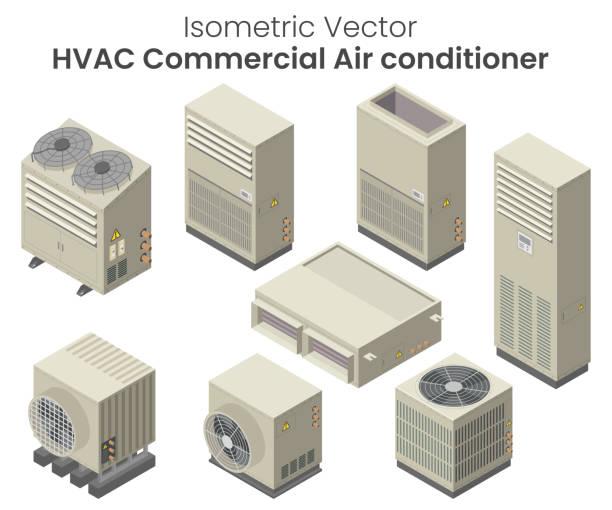
Incomplete Diagnostics: A contractor charging $75 for diagnostics may only perform surface-level checks, missing underlying issues. Comprehensive diagnostics cost more because they involve refrigerant pressure testing, electrical testing, airflow measurement, and system performance analysisall essential for accurate repairs.
Real Cost Comparison: Cheap vs. Quality
Consider this real-world scenario from a Houston homeowner:
Sarah received three quotes for her non-cooling AC: $250 from an unlicensed handyman claiming it needed a capacitor, $475 from a licensed contractor for capacitor and contactor replacement plus refrigerant check, and $625 from another contractor recommending capacitor, contactor, and compressor cleaning.
She chose the $250 option. Three weeks later, her system failed again. The contactor had also failed (the original missed diagnosis), and the capacitor used was inferior quality. The second repair cost $400. Total spent: $650, plus discomfort during the second failure.
Had she chosen the $475 middle option, she would have saved $175 and avoided the second breakdown. The $625 option, while more expensive, would have provided the most comprehensive solution.
How to Get Reasonable Rates Without Sacrificing Quality
Finding the balance between cost and quality requires strategy, not just price shopping. Here’s how to maximize value:
Get Multiple Detailed Quotes
Request at least three quotes from licensed contractors, ensuring each includes:
- Itemized parts list with manufacturer names and model numbers
- Labor hours and hourly rate breakdown
- Warranty information for both parts and labor
- Contractor license number and insurance verification
- Timeline for completion
- Payment terms and any financing options
Detailed quotes allow apples-to-apples comparison. A $400 quote using OEM parts with a 5-year warranty may offer better value than a $300 quote with generic parts and a 90-day warranty.
Understand What You’re Paying For
Ask questions about every line item. Reputable contractors like 75 Degree AC’s repair services welcome questions and provide transparent explanations. Red flags emerge when contractors can’t or won’t explain their pricing.
Specific questions to ask:
- “What brand and model parts will you use, and what warranties do they carry?”
- “Can you show me the failed component and explain why it needs replacement?”
- “What’s included in your labor ratejust the repair time or also diagnostics and testing?”
- “Do you guarantee your work, and for how long?”
- “Are there any scenarios where the price might increase, and what are they?”
Leverage Preventive Maintenance
The most reasonable AC repair rate is the one you never pay. Regular maintenance prevents 8090% of common AC failures, according to ENERGY STAR. Professional AC maintenance programs typically cost $150$300 annually but save homeowners an average of $450 in avoided emergency repairs.
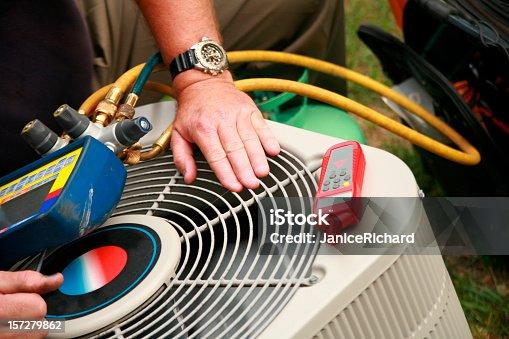
Maintenance plans often include priority scheduling, discounted repair rates (1020% off), and extended warrantieseffectively reducing your long-term repair costs while maintaining system efficiency.
Consider Repair vs. Replacement Economics
Sometimes the most reasonable decision isn’t repair at all. Use the “5,000 rule” as a guideline: multiply the repair cost by your system’s age. If the result exceeds $5,000, replacement often makes more financial sense.
Example: A $1,200 compressor repair on a 12-year-old system: 1,200 × 12 = 14,400 (well over $5,000, suggesting replacement might be wiser). The same repair on a 3-year-old system: 1,200 × 3 = 3,600 (below the threshold, making repair reasonable).
What Houston Homeowners Should Expect to Pay
Houston’s climate creates unique AC demands that affect local pricing. Systems run 810 months annually here compared to 46 months in temperate climates, leading to faster wear and more frequent repairs.
Common Houston AC Repairs and Reasonable Rates
| Repair Type | Reasonable Houston Rate | Typical Timeline |
|---|---|---|
| Capacitor Replacement | $150$300 | Same day, 3060 minutes |
| Contactor Replacement | $175$350 | Same day, 4590 minutes |
| Refrigerant Recharge (R-410A) | $200$500 | Same day, 12 hours |
| Fan Motor Replacement | $400$700 | 12 days, 24 hours labor |
| Compressor Replacement | $1,200$2,500 | 23 days, 48 hours labor |
| Evaporator Coil Replacement | $900$1,800 | 12 days, 36 hours labor |
| Thermostat Replacement | $150$400 | Same day, 12 hours |
These rates reflect licensed, insured contractors using quality parts. 75 Degree AC provides upfront, detailed quotes with no hidden fees, ensuring you understand exactly what you’re paying for before work begins.
Financing and Payment Options That Make Quality Affordable
Even reasonable repair rates can strain budgets when unexpected. Smart payment strategies help you afford quality service without delay:
- 0% APR financing: Many HVAC contractors offer 618 month interest-free financing for qualified customers, turning a $1,500 repair into manageable $125$250 monthly payments
- Maintenance plan discounts: Annual maintenance memberships typically include 1020% off repairs and priority scheduling
- Seasonal promotions: Spring and fall often bring manufacturer rebates and contractor specials that can save 1525% on repairs or replacements
- Home warranty coverage: If you have home warranty insurance, your AC repairs may be covered minus the service fee (typically $75$125)
Never let cost pressure you into deferring necessary repairs. A $400 repair today often becomes a $1,500 repair next month when the initial problem causes additional system damage.
Questions to Ask Before Authorizing Repairs
Protect yourself from unreasonable charges by asking these critical questions:
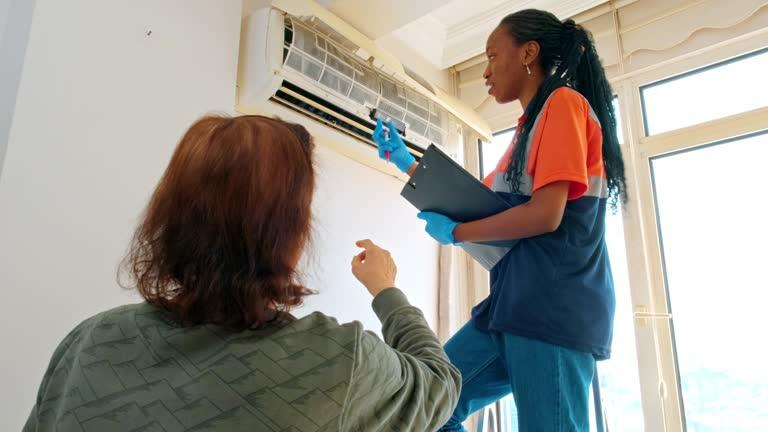
- “Can you show me the problem?” Reputable technicians document failures with photos or by showing you the failed component directly
- “What caused this failure?” Understanding root causes helps prevent recurrence and indicates thorough diagnostics
- “What happens if I don’t repair this immediately?” Distinguishes genuine emergencies from recommended but non-critical repairs
- “Do you offer any warranties?” Quality contractors stand behind their work with 15 year labor warranties and honor manufacturer part warranties
- “Are there alternative solutions?” Sometimes temporary fixes can get you through peak season until you can afford a complete repair
- “Can you provide references or reviews?” Established contractors have track records you can verify through Google reviews, Yelp, or the Better Business Bureau
Why 75 Degree AC Offers Houston’s Most Reasonable Rates
At 75 Degree AC, we define “reasonable” as transparent, competitive pricing that reflects our commitment to quality without unnecessary markups. Here’s what sets our approach apart:
Upfront, Detailed Pricing: We provide itemized quotes before starting work, with no hidden fees or surprise charges. You’ll know exactly what you’re paying for parts, labor, and any applicable service fees.
Licensed, Experienced Technicians: Our team carries proper Texas HVAC licensing and EPA certification, with an average of 8+ years field experience. You’re paying for genuine expertise, not on-the-job training.
Quality Parts with Warranties: We use OEM and premium aftermarket parts from trusted manufacturers, backed by warranties ranging from 110 years depending on the component.
Honest Assessments: We’ll tell you when a repair doesn’t make economic sense and recommend replacement when it’s truly the better value. Our goal is your long-term satisfaction, not maximizing a single transaction.
Flexible Financing: We work with multiple lenders to offer financing options that fit various credit profiles, ensuring you can afford quality repairs without delay.
Since our establishment in 2016, we’ve built our reputation on delivering exceptional valuefair prices for outstanding service. Our thousands of five-star reviews reflect this commitment to balanced pricing and quality work.
How to Verify You’re Getting a Fair Deal
Even with a quote in hand, verify its reasonableness with these steps:
Check Online Price Databases
Websites like HomeAdvisor, Angi (formerly Angie’s List), and RepairClinic provide average cost ranges for specific repairs in your zip code. While not definitive, they offer helpful benchmarks.
Verify Contractor Credentials
Texas requires HVAC contractors to hold licenses through the Texas Department of Licensing and Regulation (TDLR). Verify license status at tdlr.texas.gov. Also confirm:
- Active liability insurance (minimum $500,000 recommended)
- Workers’ compensation coverage
- Better Business Bureau rating and accreditation
- Online reviews across multiple platforms (Google, Yelp, Facebook)
Get Part Numbers and Cross-Reference
Ask for specific part numbers from the quote and look them up on HVAC supply websites like SupplyHouse.com or TruTech Tools. Add 3050% to the wholesale price for a reasonable retail cost including markup.
Common Misconceptions About AC Repair Pricing
Myth: “All repairs should cost the same.”
Reality: Two identical repairs can have different costs based on system accessibility, part availability, and time of service. A capacitor replacement on a ground-level unit takes 30 minutes; the same repair on a rooftop unit in July takes longer and involves greater safety considerations.
Myth: “Labor rates are pure profit.”
Reality: Labor rates cover technician wages (typically 5060% of the rate), insurance, licensing, continuing education, vehicle maintenance, fuel, tools, and administrative overhead. A $100/hour rate translates to roughly $2025 in actual profit.
Myth: “I can always negotiate prices down significantly.”
Reality: Reasonable contractors operate on modest margins and have limited negotiation room. While minor adjustments might be possible, demands for 3050% discounts force corners to be cutusually in part quality or thoroughness.
Myth: “Emergency rates are a scam.”
Reality: After-hours and weekend availability requires contractors to maintain on-call staff, pay premium wages, and stock additional parts. Emergency premiums (1.52x standard rates) reflect these genuine costs.
When to Walk Away from a Quote
Some situations warrant declining service and seeking alternative providers:
- The contractor refuses to provide itemized pricing or written estimates
- They pressure you to decide immediately without allowing time for quote comparison
- They can’t or won’t verify licensing and insurance
- The quote is 50%+ higher or lower than other legitimate bids without clear explanation
- They recommend replacement without thoroughly diagnosing the current system
- They discourage you from getting second opinions
- Reviews consistently mention unexpected charges or poor workmanship
Trust your instincts. If something feels off about pricing or contractor behavior, it probably is.
Frequently Asked Questions
What’s a reasonable diagnostic fee for AC repair?
Diagnostic fees typically range from $75$150 in Houston. Many contractors, including 75 Degree AC, waive this fee if you proceed with recommended repairs. Fees cover the technician’s time, expertise, and diagnostic equipment use. Be wary of contractors offering “free diagnostics”they often inflate repair costs to compensate.
Should I always get three quotes before authorizing repairs?
For repairs over $500, yes. For minor repairs under $300, getting 23 quotes is ideal but may not be practical if you need immediate service. Always get at least two quotes for any repair exceeding $1,000 or involving major components like compressors or evaporator coils.
How much should refrigerant recharge cost?
R-410A refrigerant recharges typically cost $200$500 for residential systems, depending on the amount needed. However, refrigerant shouldn’t need regular rechargingif your system is low, there’s a leak that needs repair. Any contractor charging for refrigerant without first identifying and fixing the leak is not serving your best interests.
Is it worth paying extra for emergency AC repair?
If temperatures are over 85°F, you have vulnerable household members (elderly, infants, or health conditions), or your system is completely non-functional, yes. Emergency service premiums (typically $100$300 additional) are reasonable for immediate after-hours response. For minor issues that can wait until morning, standard scheduling saves money without sacrificing quality.
Can I negotiate AC repair prices?
Limited negotiation is possible, especially if you’re comparing multiple written quotes. Some flexibility exists in service fees, diagnostic fee waivers, or package deals combining multiple repairs. However, expect minimal movement on parts costs and labor rates, as these reflect real expenses. Contractors offering massive discounts likely compromise quality, use substandard parts, or will add hidden fees later.
What payment methods should legitimate contractors accept?
Reputable contractors accept multiple payment methods: cash, check, credit/debit cards, and financing. Be cautious of contractors demanding cash-only payment, as this often indicates unlicensed operation or tax avoidance. Credit card payments offer consumer protection benefits worth the small processing fee some contractors charge.
How do I know if my AC needs repair or replacement?
Use the “5,000 rule”: multiply repair cost by system age. Results over $5,000 suggest replacement makes more economic sense. Also consider: systems over 15 years old, repairs exceeding 50% of replacement cost, refrigerant type (R-22 systems face escalating costs), and frequency of repairs (more than 23 annually indicates replacement timing).
Are maintenance plans worth the cost?
Absolutely. Annual maintenance plans ($150$300) typically include 2 tune-ups yearly, priority scheduling, 1020% repair discounts, and extended warranties. They prevent 8090% of common failures and extend system lifespan by 35 years. The average homeowner saves $300$600 annually through avoided emergency repairs alone.
Conclusion: Smart Spending on AC Repairs
Reasonable AC repair rates aren’t about finding the cheapest optionthey’re about receiving quality service at fair prices that reflect genuine value. By understanding industry-standard pricing, recognizing red flags for overcharging or corner-cutting, and asking the right questions, Houston homeowners can confidently navigate AC repair decisions.
Remember these key takeaways:
- Average AC repairs cost $165$550, with complex repairs reaching $2,500
- Legitimate pricing factors include system age, repair complexity, parts quality, and licensed contractor overhead
- The cheapest quote often becomes the most expensive choice through recurring failures
- Get detailed, itemized quotes from at least three licensed contractors for major repairs
- Preventive maintenance reduces repair needs by 8090% and saves hundreds annually
- Verify contractor credentials, check references, and trust your instincts
At 75 Degree AC, we believe in transparent pricing that reflects our commitment to exceptional service without unnecessary markups. Our licensed technicians provide upfront quotes, use quality parts with warranties, and stand behind every repair we complete. We’re not the cheapest option in Houstonwe’re the best value.
Ready for honest AC repair pricing and reliable service? Call 75 Degree AC at (713) 598-2737 or schedule online for same-day diagnostics and transparent quotes. Experience the difference that fair pricing and quality workmanship make. Don’t let AC problems lingercontact Houston’s most trusted HVAC contractor today.

